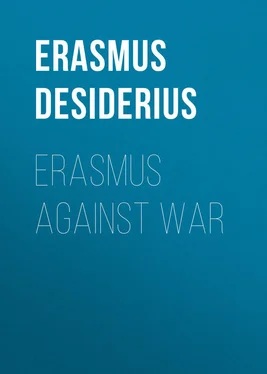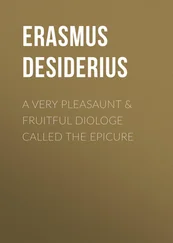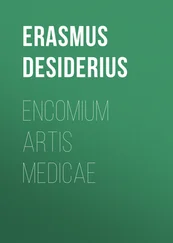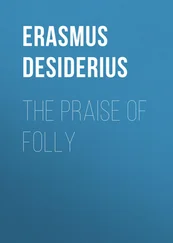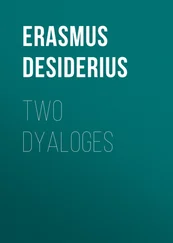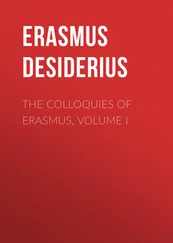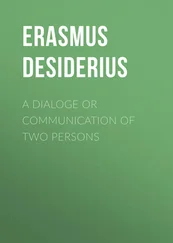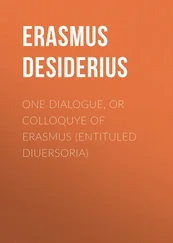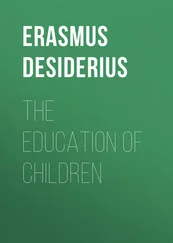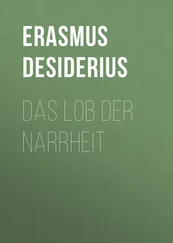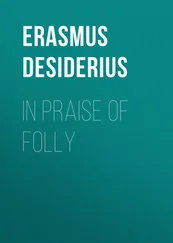Desiderius Erasmus - Erasmus Against War
Здесь есть возможность читать онлайн «Desiderius Erasmus - Erasmus Against War» — ознакомительный отрывок электронной книги совершенно бесплатно, а после прочтения отрывка купить полную версию. В некоторых случаях можно слушать аудио, скачать через торрент в формате fb2 и присутствует краткое содержание. Жанр: foreign_antique, foreign_prose, на английском языке. Описание произведения, (предисловие) а так же отзывы посетителей доступны на портале библиотеки ЛибКат.
- Название:Erasmus Against War
- Автор:
- Жанр:
- Год:неизвестен
- ISBN:нет данных
- Рейтинг книги:3 / 5. Голосов: 1
-
Избранное:Добавить в избранное
- Отзывы:
-
Ваша оценка:
- 60
- 1
- 2
- 3
- 4
- 5
Erasmus Against War: краткое содержание, описание и аннотация
Предлагаем к чтению аннотацию, описание, краткое содержание или предисловие (зависит от того, что написал сам автор книги «Erasmus Against War»). Если вы не нашли необходимую информацию о книге — напишите в комментариях, мы постараемся отыскать её.
Erasmus Against War — читать онлайн ознакомительный отрывок
Ниже представлен текст книги, разбитый по страницам. Система сохранения места последней прочитанной страницы, позволяет с удобством читать онлайн бесплатно книгу «Erasmus Against War», без необходимости каждый раз заново искать на чём Вы остановились. Поставьте закладку, и сможете в любой момент перейти на страницу, на которой закончили чтение.
Интервал:
Закладка:
The Adagia, that vast work which was, at least to his own generation, Erasmus’s foremost title to fame, has long ago passed into the rank of those monuments of literature “dont la reputation s’affermira toujours parcequ’on ne les lit guère.” So far as Erasmus is more than a name for most modern readers, it is on slighter and more popular works that any direct knowledge of him is grounded on the Colloquies, which only ceased to be a schoolbook within living memory, on the Praise of Folly, and on selections from the enormous masses of his letters. An Oxford scholar of the last generation, whose profound knowledge of humanistic literature was accompanied by a gift of terse and pointed expression, describes the Adagia in a single sentence, as “a manual of the wit and wisdom of the ancient world for the use of the modern, enlivened by commentary in Erasmus’s finest vein.” In its first form, the Adagiorum Collectanea, it was published by him at Paris in 1500, just after his return from England. In the author’s epistle dedicatory to Mountjoy he ascribes to him and to Richard Charnock, the prior of Saint Mary’s College in Oxford, the inspiration of the work. It consists of a series of between eight and nine hundred comments in brief essays, each suggested by some terse or proverbial phrase from an ancient Latin author. The work gave full scope for the display, not only of the immense treasures of his learning, but of those other qualities, the combination of which raised their author far above all other contemporary writers, his keen wit, his copiousness and facility, his complete control of Latin as a living language. It met with an enthusiastic reception, and placed him at once at the head of European men of letters. Edition after edition poured from the press. It was ten times reissued at Paris within a generation. Eleven editions were published at Strasburg between 1509 and 1521. Within the same years it was reprinted at Erfurt, The Hague, Cologne, Mayence, Leyden, and elsewhere. The Rhine valley was the great nursery of letters north of the Alps, and along the Rhine from source to sea the book spread and was multiplied.
This success induced Erasmus to enlarge and complete his labours. The Adagiorum Chiliades, the title of the work in its new form, was part of the work of his residence in Italy in the years 1506-9, and was published at Venice by Aldus in September, 1508. The enlarged collection, to all intents and purposes a new work, consists of no less than three thousand two hundred and sixty heads. In a preface, Erasmus speaks slightingly of the Adagiorum Collectanea, with that affectation from which few authors are free, as a little collection carelessly made. “Some people got hold of it,” he adds, (and here the affectation becomes absolute untruth,) “and had it printed very incorrectly.” In the new work, however, much of the old disappears, much more is partially or wholly recast; and such of the old matter as is retained is dispersed at random among the new. In the Collectanea the commentaries had all been brief: here many are expanded into substantial treatises covering four or five pages of closely printed folio.
The Aldine edition had been reprinted at Basel by Froben in 1513. Shortly afterwards Erasmus himself took up his permanent residence there. Under his immediate supervision there presently appeared what was to all intents and purposes the definitive edition of 1515. It is a book of nearly seven hundred folio pages, and contains, besides the introductory matter, three thousand four hundred and eleven headings. In his preface Erasmus gives some details with regard to its composition. Of the original Paris work he now says, no doubt with truth, that it was undertaken by him hastily and without enough method. When preparing the Venice edition he had better realized the magnitude of the enterprise, and was better fitted for it by reading and learning, more especially by the mass of Greek manuscripts, and of newly printed Greek first editions, to which he had access at Venice and in other parts of Italy. In England also, owing very largely to the kindness of Archbishop Warham, more leisure and an ampler library had been available.
Among several important additions made in the edition of 1515, this essay, the text of which is the proverbial phrase “Dulce bellum inexpertis,” is at once the longest and the most remarkable. The adage itself, with a few lines of commentary, had indeed been in the original collection; but the treatise, in itself a substantial work, now appeared for the first time. It occupied a conspicuous place as the first heading in the fourth Chiliad of the complete work; and it was at once singled out from the rest as of special note and profound import. Froben was soon called upon for a separate edition. This appeared in April, 1517, in a quarto of twenty pages. This little book, the Bellum Erasmi as it was called for the sake of brevity, ran like wildfire from reader to reader. Half the scholarly presses of Europe were soon employed in reprinting it. Within ten years it had been reissued at Louvain, twice at Strasburg, twice at Mayence, at Leipsic, twice at Paris, twice at Cologne, at Antwerp, and at Venice. German translations of it were published at Basel and at Strasburg in 1519 and 1520. It soon made its way to England, and the translation here utilized was issued by Berthelet, the king’s printer, in the winter of 1533-4.
Whether the translation be by Richard Taverner, the translator and editor, a few years later, of an epitome or selection of the Chiliades, or by some other hand, there are no direct means of ascertaining; nor except for purposes of curiosity is the question an important one. The version wholly lacks distinction. It is a work of adequate scholarship but of no independent literary merit. English prose was then hardly formed. The revival of letters had reached the country, but for political and social reasons which are readily to be found in any handbook of English history, it had found a soil, fertile indeed, but not yet broken up. Since Chaucer, English poetry had practically stood still, and except where poetry has cleared the way, prose does not in ordinary circumstances advance. A few adventurers in setting forth had appeared. More’s Utopia, one of the earliest of English prose classics, is a classic in virtue of its style as well as of its matter. Berners’s translation of Froissart, published in 1523, was the first and one of the finest of that magnificent series of translations which from this time onwards for about a century were produced in an almost continuous stream, and through which the secret of prose was slowly wrung from older and more accomplished languages. Latimer, about the same time, showed his countrymen how a vernacular prose, flexible, well knit, and nervous, might be written without its lines being traced on any ancient or foreign model. Coverdale, the greatest master of English prose whom the century produced, whose name has just missed the immortality that is secure for his work, must have substantially completed that magnificent version of the Bible which appeared in 1535, and to which the authorized version of the seventeenth century owes all that one work of genius can owe to another. It is not with these great men that the translator of this treatise can be compared. But he wrought, after his measure, on the same structure as they.
It is then to the original Latin, not to this rude and stammering version, that scholars must turn now, as still more certainly they turned then, for the mind of Erasmus; for with him, even more eminently than with other authors, the style is the man, and his Latin is the substance, not merely the dress, of his thought. When he wrote it he was about forty-eight years of age. He was still in the fullness of his power. If he was often crippled by delicate health, that was no more than he had habitually been from boyhood. In this treatise we come very near the real man, with his strange mixture of liberalism and orthodoxy, of clear-sighted courage and a delicacy which nearly always might be mistaken for timidity.
Читать дальшеИнтервал:
Закладка:
Похожие книги на «Erasmus Against War»
Представляем Вашему вниманию похожие книги на «Erasmus Against War» списком для выбора. Мы отобрали схожую по названию и смыслу литературу в надежде предоставить читателям больше вариантов отыскать новые, интересные, ещё непрочитанные произведения.
Обсуждение, отзывы о книге «Erasmus Against War» и просто собственные мнения читателей. Оставьте ваши комментарии, напишите, что Вы думаете о произведении, его смысле или главных героях. Укажите что конкретно понравилось, а что нет, и почему Вы так считаете.
